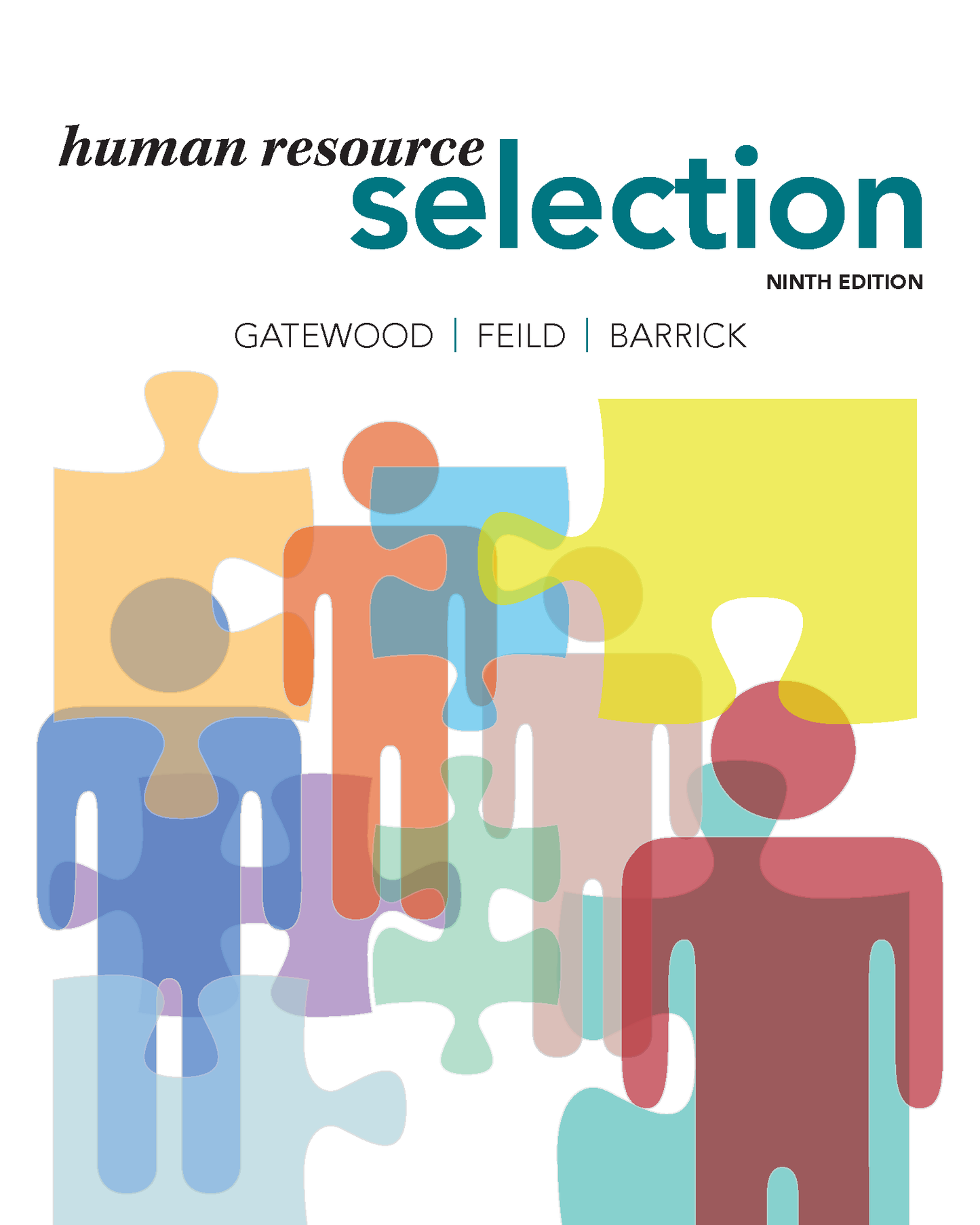Description
Based on the latest research, court findings, and best practices from the field, Gatewood, Feild, and Barrick’s Human Resource Selection equips readers with the knowledge and tools needed to develop and implement effective selection programs within today’s organizations. It achieves this by thoroughly explaining and providing detailed examples of three essential components in designing and using effective, legally defensible selection programs. The first component is conducting a job analysis to identify the key activities of the job to be filled and the worker characteristics required to successfully perform these activities. The second involves understanding the laws and legal issues that apply to applicant recruitment and the conduct of selection programs. The third is a unique feature of this book: six chapters dedicated to building and using the primary tools for gathering information about applicants’ worker characteristics. These six tools include application materials, interviews, ability and job knowledge tests, personality inventories, job simulations and work samples, and tests for counterproductive work behaviors (e.g., integrity, drug, and genetic testing). Although organizations commonly use one or more of these tools, they often gather information that is not directly related to job performance, lacks adequate evaluation guidelines, or can be contested by applicants as unfair or discriminatory. Each chapter discusses how to avoid these pitfalls and develop reliable and defensible tools that provide valid information for selection decisions.
The book emphasizes “best practices,” not “easy practices.” Building a useful selection program requires time, thought, and effort. Ample evidence demonstrates that organizations that implement “best selection practices” achieve high levels of employee performance. These practices rest on three key assumptions. First, the information gathered from applicants must be directly related to job performance. Often, details such as degrees earned, previous job titles, future goals, or years of experience are not strongly related to job performance and may not even be verifiable. Second, a numerical scoring method must be applied to the information gathered. These scores quantify the extent of a worker characteristic that the applicant possesses. As in most organizational fields—such as finance, marketing, and production—decisions should be based on quantitative data. Third, selection decisions must follow decision rules that use these scores to determine whom to offer employment. Evidence clearly shows that decisions based on data are superior to those based on human judgment. These assumptions are increasingly fulfilled in successful organizations.
Extremely reader-friendly, the text clearly presents its ideas and provides specific examples and detailed recommendations. The book's longevity (first published in 1987, now in its 9th edition) is a testament to its value for both students and practitioners of selection.
Details
- ISBN (View all)
- 978-0-9995547-4-6
- Dimensions
- 8.0 x 10.0 in
- Length
- 783 pages
- Year Published
- 2019
Instructor Materials
This title includes access to course materials for verified instructors:- Choosing a selection results in a full page refresh.
- Opens in a new window.


